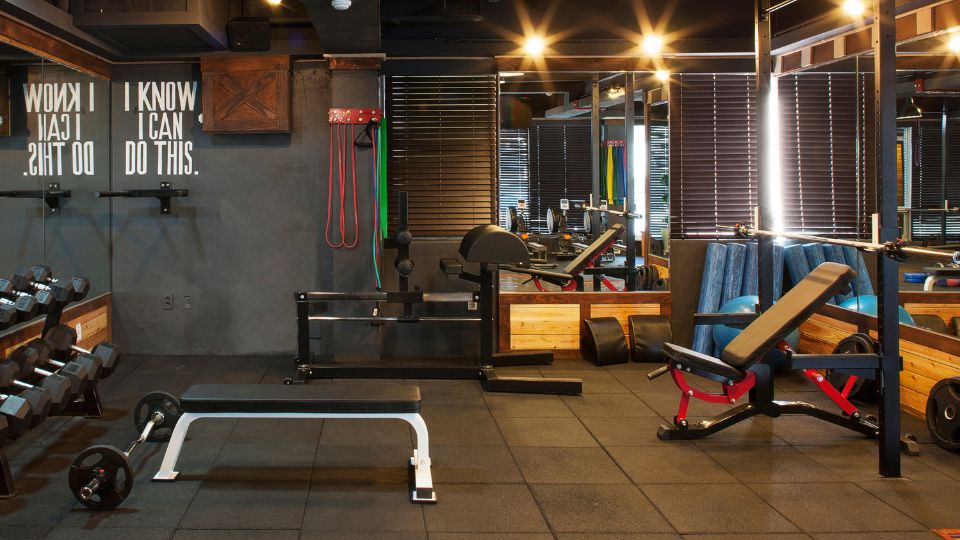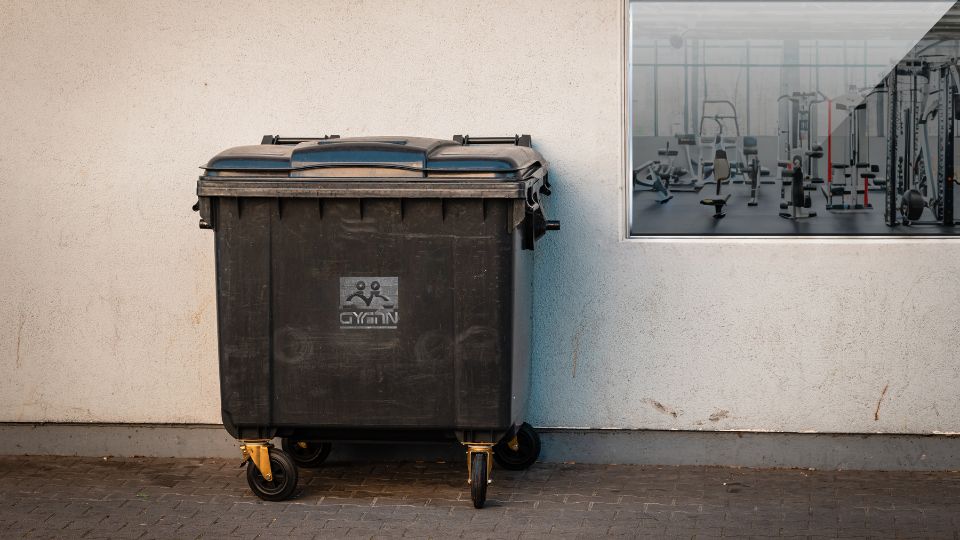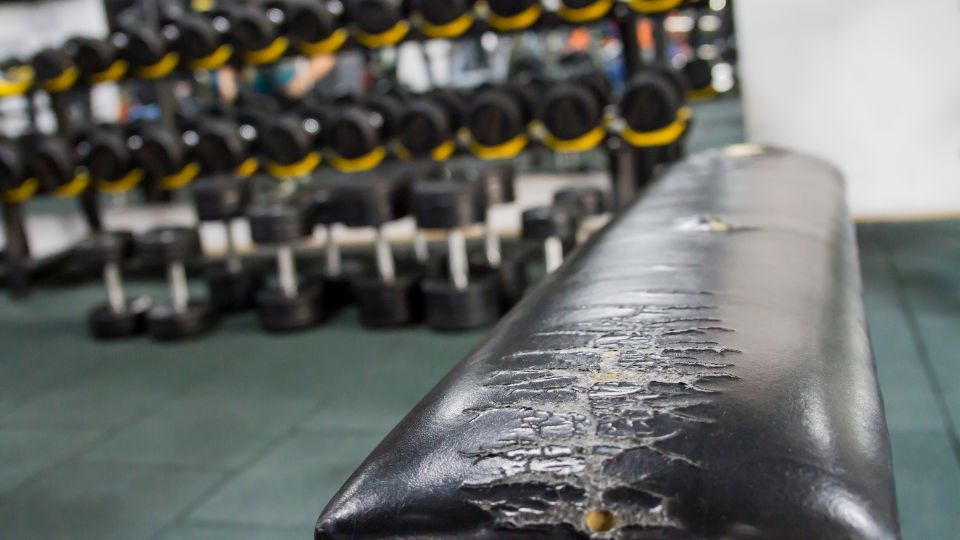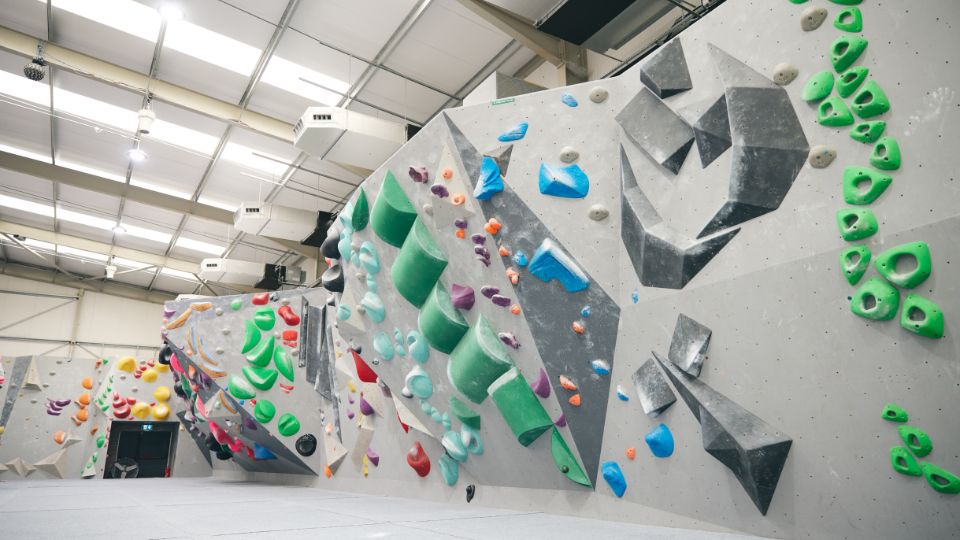
Gyms generate various types of waste, from disposable items to recyclables and potentially hazardous materials. Waste management is crucial to maintaining cleanliness, ensuring safety, and complying with regulations.
This guide covers everything you need to know about handling waste at your gym, including types of waste, necessary bins, waste collection services, recycling options, and strategies for reducing waste.
Table of Contents
- What are the types of waste produced at Gyms?
- What types of bins does my Gym need?
- What waste collection services are best for Gyms?
- What type of waste can Gyms recycle?
- How can Gym owners reduce waste?
- Facts and statistics about Gym waste
- Extra tips for Gym owners
- Conclusion
What are the types of waste produced at Gyms?
Understanding the types of waste your gym produces is the first step in managing it effectively. Common types of waste include:
- General Waste – Disposable towels, snack wrappers, and other non-recyclable items or occasional waste like worn-out gym mats and resistance bands.
- Recyclable Waste – Paper, cardboard, plastic bottles, and aluminium cans.
- Food Waste – Leftovers from snack bars or cafes.
- Hazardous Waste – Cleaning chemicals, batteries, and electronic waste from gym equipment.
- Sanitary Waste – From toilets and changing rooms.
- Textile Waste – Worn-out gym towels (if you provide those), or padding from machines/benches.
What types of bins does my Gym need?
Having the right bins both inside and outside your gym is crucial.
Bins for inside your Gym:
- General Waste Bins: Located in changing rooms, toilets, near the exits/entrances or in any cafe/snack area you may have.
- Recycling Bins: Placed in common areas, snack bars, and near vending machines.
- Food Bins: Only really necessary if you have a cafe, snack bar or staff kitchens.
- Sanitary Bins: Inside toilets and changing rooms with closable lids.
Wheelie bins for waste collection:
- General Waste Containers – Larger wheelie bins for general waste – they come in 240L (standard household wheelie bin size), 660L, and 1100L bin.
- Recycling Containers: Separate bins for different recyclable materials like plastic, paper, and glass. Come in 240L, 660L, and 1100L.
- Food Waste Containers: 240L wheelie bins exclusively for food waste.

What waste collection services are best for Gyms?
For gyms, we recommend using a waste management service that can collect all your waste types so that you only have to deal with one company and one invoice for all your waste needs.
A typical waste collection service for gyms is a weekly general waste, fortnightly dry-mixed recycling, weekly food waste (if you have an onsite cafe/snackbar), and weekly sanitary waste collection.
Your largest bin will be your general waste, then recycling, and finally food waste.
Most gym owners opt for a 660L general waste, 240L recycling, and 240L food waste (if they have a cafe). But this all depends on the size of your gym. The best way of knowing exactly what you’ll need is to get a quote from a waste collector.
What type of waste can Gyms recycle?
Here are some items commonly recycled at gyms:
- Paper and Cardboard – From packaging and office supplies.
- Plastic Bottles and Containers – Used for drinks and cleaning supplies (must be cleaned and dried out).
- Aluminum Cans: Beverage containers from vending machines or snack bars.
- Glass Bottles: From juice or other beverages that have glass containers. If you generate a lot of this type of waste, you’ll need a dedicated glass waste bin and collection service.
How can Gym owners reduce waste?
Implementing waste reduction strategies can save you money and benefit the environment:
- Bulk Purchasing – Buy supplies in bulk to minimise packaging waste.
- Digital Systems – Use digital sign-ups, waivers, and receipts to reduce paper waste.
- Eco-friendly Products – Opt for products with minimal packaging and biodegradable materials.
- Water Stations – Install water refill stations to reduce plastic bottle use.
- Repair Damaged Equipment – Instead of throwing out ripped bench or machine seat padding, consider getting it repaired/upholstered.

Facts and statistics about Gym waste
- For every 1000 pads (bench padding/seats) that are repaired instead of being replaced, saves around 3.8 tonnes of waste going into landfill.
- Gyms can waste a lot of water. A large gym in the US, The Longfellow Club was found to use an average of 969,000 litres of water per month. But, after implementing water-saving measures, such as installing waterless urinals and changing shower heads, their water usage was reduced to approximately 625,000 litres per month. That’s a 35% saving.
- 66% of people would choose a gym that offered free water refills over a competitor. Now that’s a great reason to offer free refills rather than single use plastic bottle products.
Extra tips for Gym owners
- Staff Training – Educate your staff about proper waste segregation and recycling practices.
- Member Education – Inform your members about your eco-friendly practices and encourage them to participate.
- Regular Audits – Conduct waste audits to identify areas for improvement.
Conclusion
Effective waste management is essential for running a successful and sustainable gym in the UK. You need to know what type of waste your business is generating, how much of it and what kinds of bins you’ll need. Remember, you are responsible for disposing of your waste in a safe and legally compliant way.
The best way to ensure compliance is to use a licenced waste collector who will provide all your Duty of Care documents and take your waste to the appropriate recycling and treatment facilities rather than just a landfill.






